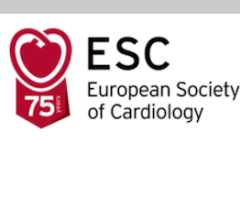
June 28, 2016 — New research shows patients admitted to National Health Service (NHS) hospitals in the United Kingdom for atrial fibrillation or heart failure over the weekend face a higher risk of dying over the next five years than those admitted during normal hours. The research, led by Rahul Potluri, M.D., founder of the ACALM study unit at Aston University, was presented at the British Cardiovascular Society (BCS) Conference, June 6-8 in Manchester.
The study of 42,687 patients with AF, one of the most common forms of abnormal heart rhythm, finds that those admitted outside of normal operating hours (9 a.m.-5 p.m., Monday-Friday) have a 10 percent increased risk of dying in the next five years. The research was adjusted to account for external factors that could influence death rates such as age, gender, ethnic group and the most common causes of mortality in the U.K.
Normally, the heart’s natural pacemaker sends out a regular electrical impulse that travels through the heart. But when someone has AF, impulses fire off from different places in the atria, causing chaotic electrical activity, which makes them have an irregular and sometimes fast pulse. AF affects about one million people in the U.K. – or 1.7 percent of the population – but many more are undiagnosed and do not know they have it.
In a separate study, the researchers also looked at 31,760 heart failure patients discharged from hospitals in the north of England on weekends, finding a 32 percent increased chance of dying over the next five years compared to those sent home during regular weekday hours.
Across the U.K. there are more than 500,000 people diagnosed with heart failure.
Heart failure is a disabling condition and severe heart failure can have a worse life expectancy than many cancers. It is most commonly caused following a heart attack when the heart muscle suffers irreparable damage and can no longer pump blood efficiently around the body. In severe cases people with heart failure are left unable to perform regular day-to-day activities like walking upstairs or are left breathless even when resting. Up to a third of patients admitted to the hospital with heart failure will die within twelve months.
Potluri said, “This study shows that the weekend effect is very much a reality for those suffering two of the most prevalent heart conditions in the U.K. These patients are, quite simply, more likely to die if admitted or discharged outside regular hours, and that trend is particularly noticeable at the weekend.
Paul Carter, M.D., presenting author at the BCS Conference, said: “We took steps during this study to ensure that the comparison between the two groups was as fair as possible.
“It is interesting that both being admitted or discharged from hospital on the weekend confers an increased risk, and one which is sustained in the long-term. We cannot comment on the underlying reasons for this from our study but it suggests that the level of support provided at weekends, from all teams involved in healthcare — in the hospital and in the community — should be addressed.”
Potluri added, “What this research shows is that the weekend effect is not a universal phenomenon. Across the two conditions we studied, its impact was varied, suggesting it can’t be tackled effectively by blanket improvements to care.
“Further research is urgently needed to assess what the implications of the weekend effect are for individual conditions, before any costly changes to services are implemented.”
For more information: www.bcs.com/conference


 February 09, 2026
February 09, 2026 









